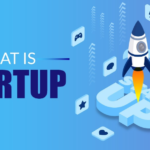Google and IBM just changed the game. The quantum future is real, and it’s closer than ever.
🧠 What Is Quantum Computing, and Why Should You Care?
Quantum computing is no longer science fiction. Tech giants like Google and IBM are making breakthroughs that bring this mind-bending technology closer to everyday use. Unlike regular computers that use bits (0s and 1s), quantum computers use qubits, which can be both 0 and 1 at the same time. This allows them to solve problems that would take even the most powerful supercomputers millions or even billions of years to crack — in just minutes.
Google’s New Quantum Chip: 5 Minutes vs. 10 Septillion Years
Yes, you read that right. Google recently announced a quantum chip that can perform a task in under five minutes—a task that would take today’s fastest supercomputer 10 septillion years (that’s a 1 followed by 25 zeros!). This is a huge leap in processing power, made possible by the strange rules of quantum mechanics.
This chip isn’t just fast—it’s a signal that the quantum era has officially begun.
🔐 What IBM Is Doing: The First Reliable Quantum Computer by 2029
While Google broke speed records, IBM is working on making quantum computers more stable and reliable. The company has announced its goal to build the first fault-tolerant quantum computer—called the IBM Quantum Starling—by 2029.
Key highlights:
Can run 100 million quantum operations
- Uses 200 error-resistant qubits
- Equipped with real-time error correction, making it stable enough for real-world tasks
- Could help develop new drugs, stronger materials, and even improve batteries and AI
⚠️ The Double-Edged Sword: Power Comes with Risk
Quantum computing could revolutionize everything—but it also comes with serious concerns.
For example:
- It could break current encryption methods, risking online banking and data privacy.
- It can speed up drug discovery, but also help create bioweapons.
That’s why experts are urging governments to regulate quantum tech carefully before it becomes widespread. A team of researchers has proposed a smart framework called “Safeguard, Engage, and Advance”, which focuses on:
- Safeguarding society from risks
- Engaging scientists, governments, and citizens
- Advancing the technology in a responsible way
🧰 What Happens Next? Are We Ready for the Quantum Future?
Experts believe we need to start preparing right now, even if large-scale quantum computers are still years away.
Here’s what that means:
- Developers must write new quantum algorithms
- Businesses need to start using quantum-safe encryption
- Governments must train a skilled workforce to handle the technology
- Ethical rules and policies must be in place before it’s too late
Even the U.S. Pentagon is studying how soon quantum computers could become a real-world tool—possibly by 2033.
🤖 AI + Quantum: A Powerful Tech Duo
Some experts predict that quantum computing and artificial intelligence (AI) will work together in the future. Quantum computers could supercharge AI systems, and AI could help solve some of quantum computing’s biggest challenges.
This combination could lead to breakthroughs in robotics, automation, healthcare, energy, and more.
🌍 Conclusion: Quantum Is No Longer a Distant Dream
The bottom line? Quantum computing is real, powerful, and coming faster than most people think. Tech leaders like Google and IBM are moving from theory to practice, and the world needs to catch up—fast.
We’re entering a new computing revolution. Let’s make sure we’re ready for it.










